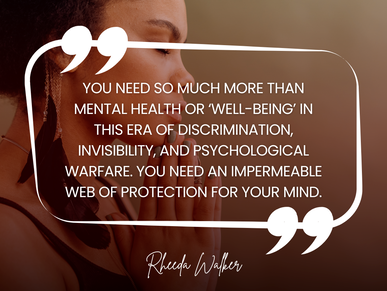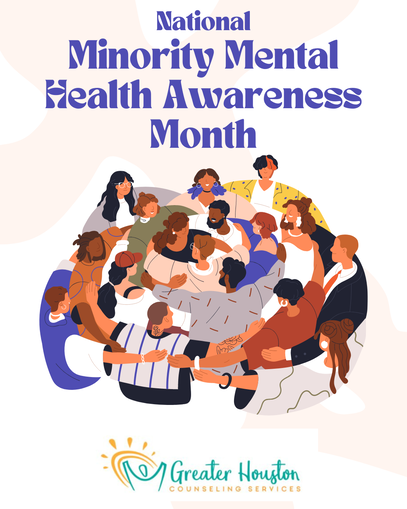|
In the vast tapestry of our society, the thread that unites us all is our shared human experience. Despite our cultural, racial, or ethnic differences, mental health is a universal aspect of our lives that connects us all. It's no secret that mental health conditions do not discriminate. However, the journey towards mental well-being is not equally accessible to all, particularly for racial and ethnic minority groups. In this blog post, we aim to bring light to these challenges while advocating for a broader acceptance and understanding. Racial and ethnic minorities face unique hurdles in the quest for mental health services. A complex web of systemic barriers, cultural stigma, and inadequate access to quality care intertwines, exacerbating their mental health issues while silencing their struggles. Systemic and societal barriers are often the most significant obstacles. Socioeconomic factors play a significant role, with minorities often grappling with issues like poverty and lack of access to affordable, quality healthcare. However, even when resources are available, the presence of cultural and linguistic barriers can deter individuals from seeking help. The lack of mental health professionals who speak their language or understand their cultural nuances is a glaring gap in the system that needs to be addressed. The societal stigma surrounding mental health is another critical issue. Cultural values and perceptions can often dictate attitudes towards mental health, discouraging individuals from seeking help due to fear of judgment or ostracization. In the realm of mental health services, representation matters. The dearth of mental health professionals from minority backgrounds can often deter individuals from seeking help due to fear of being misunderstood. Increasing diversity within the mental health profession can make a significant difference in encouraging minorities to seek the help they need. However, despite these challenges, there is hope. The conversation about mental health within minority communities is evolving. Advocacy groups, community leaders, and forward-thinking individuals are tirelessly working to break down these barriers and foster a society where mental health care is accessible, inclusive, and culturally competent. As we move forward, let us remember that change begins with understanding. Through open dialogue, education, and empathy, we can foster an environment where individuals from all walks of life feel seen, heard, and understood. Mental health should not be a privilege for the few but a right for all. In the words of renowned psychologist Carl Rogers, "The good life is a process, not a state of being. It is a direction, not a destination." Let us pledge to make this journey towards mental well-being accessible to all, regardless of their racial or ethnic backgrounds. We at Greater Houston Counseling Services are committed to this mission and will continue striving to provide mental health services that are as diverse and vibrant as the communities we serve.
So let's continue to challenge these obstacles, promote acceptance, and work tirelessly towards a more inclusive future for mental health. Because, when it comes to mental health, every mind matters. Until next time, Your friends at GHCS
0 Comments
Leave a Reply. |
Archives
January 2024
Categories
All
|
|
|
Share This Page
Greater Houston Counseling Services
"Making your day a little easier" Phone: (832) 717-7166 |
Four locations across the Houston area |



 RSS Feed
RSS Feed